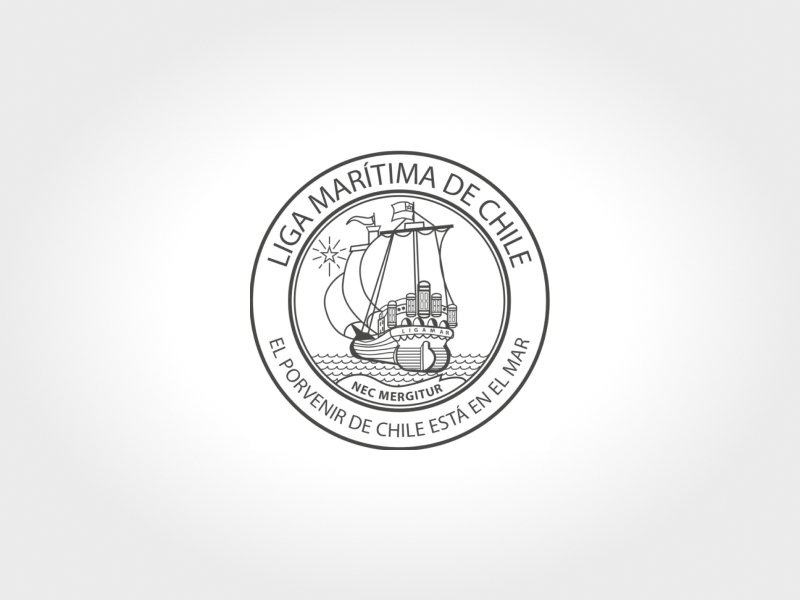
 Hugo Barra Salcedo. Director Liga Marítima de Chile
Hugo Barra Salcedo. Director Liga Marítima de Chile
Sin embargo, visionarios compatriotas, identificando correctamente las prioridades que el puerto y Chile requerían, materializaron ideas y proyectos que brindaron oportunidades de trabajo. En ese contexto nace la Liga Marítima de Chile, un vigía de los Intereses Marítimos del país. Entre sus iniciativas destacan la creación de las 200 millas de Zona Económica Exclusiva, la Ley de Cabotaje y la Escuela de Navegación Mercante e Ingenieros Navales.
Paralelamente, el puerto construyó el Molo y acogió los diques flotantes del Astillero Las Habas, industria que generaba cientos de empleos directos e indirectos.
Hoy, como un déjà vu, 110 años después, muchos porteños buscan empleo en el denominado ‘Valparaíso Patrimonial’. Otros trabajan bajo condiciones infrahumanas e informales, sin previsión, salud, bonos o vacaciones. Estudiantes vespertinos se ven obligados a “pitutear” durante el día, mientras algunos ceden o están próximos a ceder al dinero fácil y peligroso de la droga producto de la falta de oportunidades.
En este contexto, algunos que se dicen ‘porteños’ se esmeran en entorpecer el desarrollo de la cuaderna maestra de su ser, ......el Puerto. Un Puerto que, no obstante, hoy se ahoga en permisologías que impiden que vuelva a ser una ciudad puerto, sigue siendo responsable de casi el 40% del PIB Regional.
Llevamos quince años intentando que Valparaíso atraiga inversión y prospere. Resulta incomprensible que, tras tanto tiempo y múltiples esfuerzos de las autoridades competentes, el proyecto original que ofrecía una solución al problema haya sido jibarizado para cumplir con diversas observaciones ambientales, patrimoniales, turísticas, entre otras. Aunque al final de este interminable túnel comienza a vislumbrarse algo de luz, aún persisten intentos por frenar el desarrollo de nuestro puerto.
Téngase presente que competimos en forma muy desventajosa por inversiones en el país y la región. Ya no somos el alumno aventajado de Sudamérica. El impuesto corporativo es en Chile de un 27%, siendo que, “por ahora”, en EEUU es de solo 21%, impuesto que la nueva administración, promete reducir a 15%.
Valparaíso necesita oportunidades de trabajo para que los porteños proyecten sus vidas aquí. Los habitantes de los cerros necesitan esperanza. ¿Acaso no llama la atención de ideólogos - idealistas que las navieras se hayan trasladado a Santiago y las Casas Clasificadoras a Viña del Mar? ¡Sólo resta decir que el Molo no se ha ido a Viña porque sencillamente no es posible moverlo!
_______________________
Valparaíso in Danger
Just over a century ago, Valparaíso faced two monumental events in the same year: the opening of the Panama Canal and the outbreak of the First World War. These two events caught us unprepared, plunging the once Jewel of the Pacific into deep unemployment and social depression. Chile experienced firsthand the harsh reality of what a decline in maritime activity meant in terms of labour demand, particularly for the people of Valparaíso.
However, visionary compatriots, correctly identifying the priorities required by the port and Chile, brought to life ideas and projects that created employment opportunities. It was within this context that the Liga Marítima de Chile was founded, serving as a guardian of the nation’s maritime interests. Among its key initiatives were the creation of the 200-mile Exclusive Economic Zone, the Cabotage Law, and the Merchant Navigation and Naval Engineering School.
Simultaneously, the port built the Molo (breakwater) and welcomed the floating docks of the Las Habas Shipyard, an industry that generated hundreds of direct and indirect jobs.
Today, as if in a déjà vu, 110 years later, many people of Valparaíso are searching for work in what is now called ‘Heritage Valparaíso.’ Others work under inhumane and informal conditions, with no social security, healthcare, bonuses, or holidays. Evening students are forced to take up odd jobs during the day, while some are yielding or are at risk of yielding to the dangerous lure of drug money due to the lack of opportunities.
In this context, some who call themselves ‘porteños’ (people of Valparaíso) seem to make an effort to hinder the development of the lifeline of their city... the port. A port which, despite drowning today in bureaucratic red tape preventing it from once again becoming a true port city, still accounts for nearly 40% of the region’s GDP.
For fifteen years, we have been trying to make Valparaíso attractive for investment and prosperity. It is incomprehensible that, after such a long time and numerous efforts by the competent authorities, the original project that offered a solution to the problem has been downsized to meet various environmental, heritage, and tourism-related requirements, among others. Although some light can now be seen at the end of this seemingly endless tunnel, attempts to stall the development of our port still persist.
It must be remembered that we compete under highly disadvantageous conditions for investments in the country and the region. We are no longer South America's star pupil. Corporate tax in Chile is 27%, while in the US it is currently only 21%, with the new administration promising to reduce it further to 15%.
Valparaíso needs job opportunities so its people can build their lives here. The residents of the hills need hope. Is it not striking to ideologues and idealists that shipping companies have relocated to Santiago, and rating agencies have moved to Viña del Mar? One can only add that the Molo has not moved to Viña simply because it cannot be relocated!
